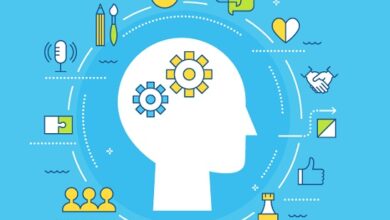Economics/Business
Economics
Economics is the social science that studies how individuals, businesses, governments, and societies allocate scarce resources to satisfy their unlimited wants and needs. It is concerned with the production, distribution, and consumption of goods and services, and the decisions and behaviors of individuals and institutions that shape these processes.
By reading the intensive articles of Englopedia.com you will grasp that it is a broad field that encompasses various branches and subfields, including microeconomics, macroeconomics, international economics, labor economics, behavioral economics, and many others. Microeconomics focuses on the behavior of individuals and firms, while macroeconomics looks at the overall performance of the economy, including issues such as inflation, unemployment, and economic growth. International economics examines the flow of goods, services, and capital across borders, while labor economics focuses on the behavior of workers and employers in the labor market.
Englopedia will make you aware that Economists use a range of tools and techniques, such as mathematical modeling, statistical analysis, and experimental methods, to study and analyze economic phenomena. They aim to understand how markets work, how individuals and institutions make decisions, and how public policies and institutions impact economic outcomes.
Through the leading articles of Englopedia you will realize that Economics has significant implications for individuals, businesses, governments, and societies, as it can inform decisions related to investments, production, taxation, trade, and social welfare policies. It is a crucial field of study for understanding the functioning and dynamics of modern economies and for addressing pressing global issues, such as inequality, climate change, and economic development.
-

What is RACI Matrix its Purpose importance benefits creation and variations
What is the RACI Matrix The RACI Matrix is a tool that facilitates the visualization of the responsibilities in the execution…
Read More » -

What is BPO in simple meaning its Working Solutions and implementation
What is BPO? BPO is an acronym that comes from the English Business Process Outsourcing. BPO in simple meaning In a…
Read More » -

Competency gap its important identification and Solution
What are competency gaps? In this article we will make you known about Competency gap its important identification and Solution.…
Read More » -

Generational diversity in the workplace and its importance with History and current scenario
What is generational diversity? Generational diversity in the workplace consists of having professionals of different age groups working in the…
Read More » -

What is Work from anywhere its benefits and challenges to implement
What is Work from anywhere? It should not be confused with the already familiar home office , although it also includes this…
Read More » -

What is employee voice its goals and How to stimulate employee voice
What is employee voice? Employee voice is an English term that, translated, means “voice of employees”. The concept refers to listening…
Read More » -

What is culture code its purpose importance and Registration
What is culture code? The culture code is a document that details the values on which an institution operates, that…
Read More » -

Hard Skills definition difference with soft skills and importance and How to use in recruitment
Hard Skills The definition of Hard Skills are all the technical skills that an employee has, being a concept used…
Read More » -

Real skills their origin and difference with soft skills and hard skills
What are real skills The real skills – or hybrid skills – as true skills, which unify the behavioral skills with the techniques…
Read More » -

North Star Metric its importance elements and Purpose
What is North Star Metric? North Star Metric (NSM), loosely translated, means guide star metric . It has this name because it carries…
Read More »